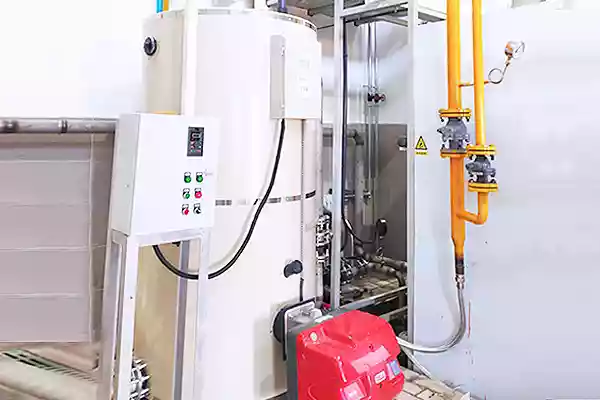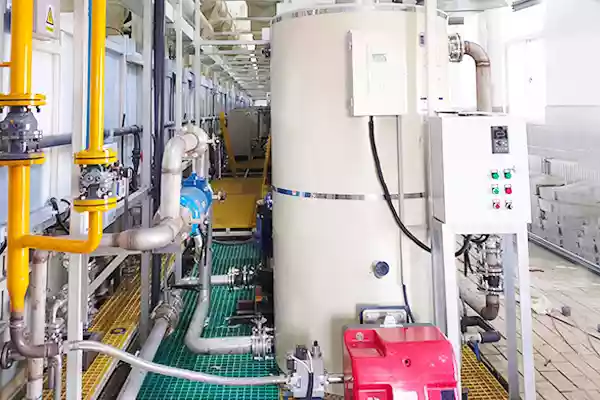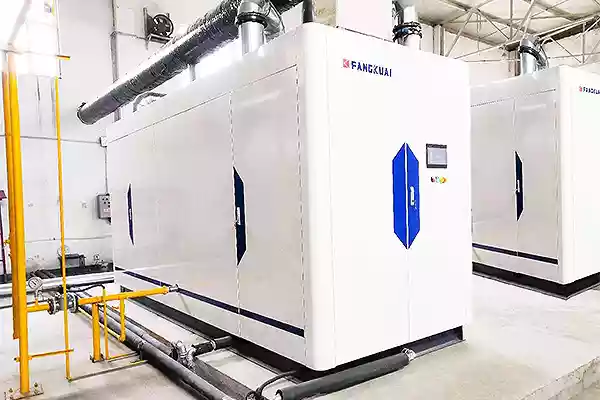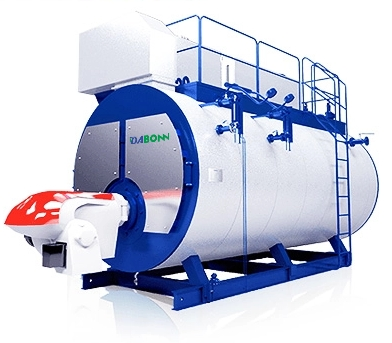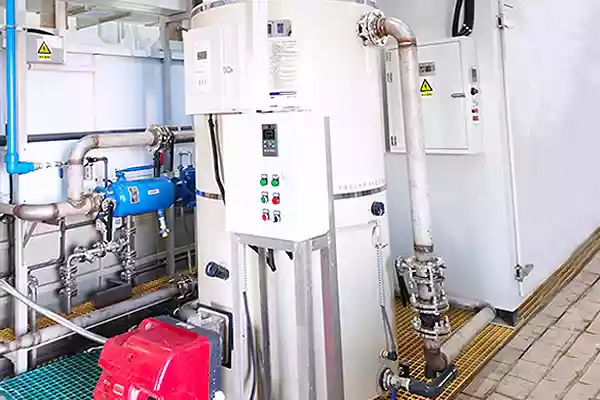
介绍
炉子和锅炉均可为您的家提供供暖和热水. 在本文中, 我们将详细向您介绍它们之间有什么区别, 并帮助您在选择时做出明智的决定.
如何工作.
锅炉和炉子均可用于为您的房屋供暖, 但他们的工作方式不同. 锅炉直接使用电或燃料加热水 (像天然气一样), 然后通过散热器或对流器将热量传递到您的家中. 另一方面, 熔炉在燃烧器中使用电子元件来产生气流,通过管道系统在整个房屋内循环.
热差.
在这两种情况下, 燃烧燃料产生热量. 但它们的工作方式存在一些差异. A furnace is a closed system that uses air to burn coal or oil, whereas a boiler uses steam (water heated to its boiling point).
A boiler can produce more heat than a furnace because it’s an open system — the heated water goes into pipes that circulate through the home and provide warmth throughout it. Boilers also use less fuel than furnaces because they’re more efficient at producing hot water than heating systems are at producing warm air throughout your house.
Efficiency Comparison.
锅炉比熔炉效率更高. 锅炉的效率通常约为 90%, 而熔炉仅在周围 65%. 这意味着锅炉使用的燃料比熔炉少, 这可以节省您的电费并有助于减少碳足迹.
优点 & 庞斯.
熔炉的优点:
- 安装成本较低.
- 更有效地快速加热大空间.
- 房主可以轻松检查或更换空气过滤器.
熔炉的缺点:
- 空气分布可能导致加热不均匀.
- Regular air filter maintenance is required.
- Potentially higher energy costs, especially if the system is not properly sized or maintained.
Pros of Boilers:
- High energy efficiency.
- More even and comfortable heat distribution.
- Lower risk of indoor air quality issues as they don’t blow air around the house.
Cons of Boilers:
- Higher upfront installation costs.
- Requires professional expertise for installation and maintenance.
- Slower heating response compared to furnaces.
Life expectancy.
When it comes to lifespan, boilers have the upper hand. A boiler can last up to 30 年 while a furnace can last up to 20 年. This is because boilers are more durable and require less maintenance than furnaces.
应用.
Furnaces are used to heat homes, 企业, and other buildings. They use electricity or gas to heat air that is forced into the home by fans. Furnaces can be either vented or non-vented (also called sealed combustion). Vented furnaces have an exterior venting system that allows them to release combustion gases through the roof of your house. Sealed combustion furnaces do not require an exterior venting system because they don’t produce any combustion gases outside of your home.
Boilers provide hot water for household needs such as bathing and washing dishes by heating water using wood or coal. These include apartments and tiny houses. Examples include apartments and small houses in rural areas, which cost less to heat than larger homes. Because of their smaller area, they operate more efficiently.
Maintenance comparison.
一般来说, boilers require more maintenance than furnaces. This is because boilers are more complicated machines that operate at higher temperatures and pressures than furnaces do. 像这样, they’re also more likely to break down due to wear and tear or an interruption in operation. 一般, boilers require about $100 每年 in maintenance costs (including parts and labor).
If you need your boiler repaired or serviced regularly (more than once per year), then this will add up over time as well–and it’ll be more expensive than just having your furnace serviced every year or two by comparison!
Installation.
When it comes to the installation of furnaces and boilers, it is important to note that both systems require professional expertise for proper installation. 然而, there are some differences in the installation process.
Furnace installation typically involves the following steps:
- Sizing: A professional HVAC technician will assess the heating needs of your home to determine the appropriate size of the furnace.
- 管道系统: 如果您家已有管道系统, 技术人员将检查并可能进行修改以确保适当的气流.
- 通风: 为了 煤气炉或丙烷炉, 为了安全释放燃烧气体,需要适当地向室外通风.
- 电气连接: 炉子需要连接到您家的电力系统.
- 温控器安装: 恒温器, 控制炉子, 将安装并接线.
锅炉安装, 另一方面, 涉及的步骤略有不同:
- Sizing: 类似于熔炉, 锅炉的尺寸需要适当,以满足您家的供暖要求.
- 管道: 专业的水管工或暖通空调技术人员将安装必要的管道,将锅炉连接到供暖系统 (散热器, 底板, 或辐射地板系统).
- 通风: 锅炉通常需要单独的通风, 例如烟囱或通风管, 安全释放燃烧气体.
- 燃料源连接: 锅炉需要连接到适当的燃料源, 例如天然气管道或油罐.
- 控制和接线: 类似于熔炉, 锅炉需要安装恒温器和正确的控制接线.
在这两种情况下, 专业安装对于确保安全高效运行至关重要. 建议聘请对您选择的特定系统有经验的合格 HVAC 技术人员或管道工.
每月费用.
这 每月锅炉费用 或炉子取决于几个因素, 包括装置的尺寸和使用的燃料. 您的供暖系统越大, 就能源消耗而言,运行成本越高. 例如, a 50-gallon hot water tank that uses propane gas would be far less expensive than one with an 80-gallon capacity that runs on electricity (and vice versa).
| 燃料 | Small Furnace | Medium Furnace | Large Furnace | Small Boiler | Medium Boiler | Large Boiler |
|---|---|---|---|---|---|---|
| 电 | $60 | $80 | $100 | – | – | – |
| Natural Gas | $40 | $60 | $80 | $50 | $70 | $90 |
| 油 | $80 | $100 | $120 | $70 | $90 | $110 |
How to choose.
The boiler and furnace both provide you with great service at home. 然而, there are some things you should know before choosing one over another:
- Your needs. If you’re buying a new home, consider the energy efficiency of your future home and its heating system. If you’re planning on renovating an existing house with an old furnace or boiler, make sure it will be easy to install in your home’s current configuration.
- Your space size. If you live in an apartment or condo and don’t have much room then a boiler may be better suited because they tend to be smaller than furnaces so they won’t take up too much space on your property!
- 价格. 通过比较多个提供商的报价并在购买前在线查看评论,获得两种产品的最优惠价格!
结论
在为您的家选择最好的供暖系统时, 有很多事情需要考虑. 两种最常见的加热器类型是锅炉和熔炉, 但每种都有自己的优点和缺点. 如果您想了解炉子、锅炉的详细参数及价格, 请联系我们 +0086 186-2391-5479.
Get your best price
Quickly compare 3 FREE quotes
- Engineer quick quote
- The overall delivery speed is fast
- Financial choice
- Low installation costs and cost savings
25 years+ of boiler R&D
More than 20 innovative technologies
